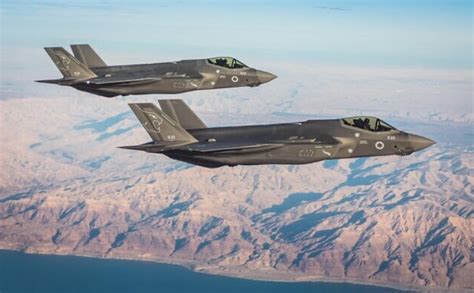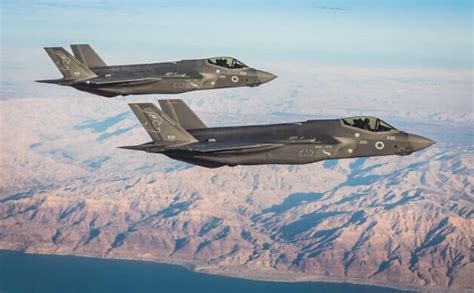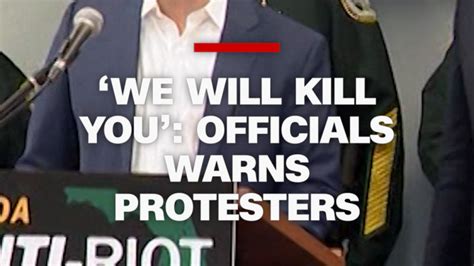
Iran’s state-backed media is reporting that its air defenses downed an Israeli F-35 fighter jet in the country’s central province of Isfahan early Friday, a claim that has been met with silence from Israeli officials.
Iran Claims Downing Israeli F-35; Israel Silent
Iranian state media outlets, including the Islamic Republic News Agency (IRNA) and Press TV, announced early Friday the downing of an Israeli F-35 fighter jet. The incident allegedly occurred over Isfahan province, a region that houses critical Iranian military installations and nuclear facilities. According to IRNA, the aircraft was targeted by Iran’s air defense systems.
“An Israeli F-35 fighter jet was shot down by Iran’s air defense in Isfahan,” IRNA reported, citing unnamed military sources. The report provided no further details regarding the type of air defense system used or the precise location within Isfahan province where the alleged downing took place. State television also broadcast the news, further amplifying the claim within Iran.
As of Friday afternoon, Israeli officials have not issued any statement either confirming or denying the Iranian claim. This silence has fueled speculation and heightened tensions in the region, already strained by ongoing conflicts and proxy wars. The Israel Defense Forces (IDF) typically responds swiftly to such reports, making the lack of communication noteworthy.
The reported incident comes amidst heightened tensions between Iran and Israel. Both countries have engaged in a shadow war for years, characterized by cyberattacks, sabotage, and occasional direct confrontations. The timing of the alleged downing, particularly given the sensitivity of the Isfahan region, raises questions about potential escalation and the strategic implications of the event.
The F-35 Lightning II, manufactured by Lockheed Martin, is considered one of the most advanced fighter jets in the world. It boasts stealth capabilities, advanced sensors, and sophisticated electronic warfare systems. Israel is one of the few countries to possess and operate the F-35, having acquired a fleet of the aircraft to bolster its air power. The loss of an F-35, if confirmed, would represent a significant blow to Israel’s military capabilities and prestige.
The Iranian claim has been met with skepticism in some quarters, given the lack of independent verification and the history of both countries engaging in propaganda and disinformation. However, the absence of a denial from Israel has lent some credence to the report, prompting analysts to closely monitor the situation for further developments.
“The silence from Israel is deafening,” said Dr. Emily Landau, a senior research fellow at the Institute for National Security Studies (INSS) in Tel Aviv. “Typically, the IDF is quick to respond to such claims, especially when they involve sensitive military assets like the F-35. Their silence suggests that there may be something to the Iranian report, or at least that they are taking it very seriously.”
The situation remains fluid, and further information is needed to determine the veracity of the Iranian claim. However, the potential implications of the alleged downing are significant, and the event could mark a dangerous escalation in the ongoing conflict between Iran and Israel.
Background: The Shadow War Between Iran and Israel
The relationship between Iran and Israel has been fraught with tension and hostility since the 1979 Iranian Revolution. Iran’s clerical regime views Israel as an illegitimate entity and has consistently called for its destruction. Israel, in turn, sees Iran’s nuclear program and support for militant groups as existential threats.
Over the years, the two countries have engaged in a shadow war, characterized by covert operations, cyberattacks, and proxy conflicts. Israel has repeatedly targeted Iranian-backed militias in Syria and Lebanon, while Iran has been accused of supporting terrorist groups that have carried out attacks against Israeli targets.
In recent years, the shadow war has intensified, with both countries engaging in increasingly brazen acts of aggression. Israel has been implicated in a series of sabotage attacks on Iranian nuclear facilities, while Iran has been accused of targeting Israeli-owned ships in the Persian Gulf.
The alleged downing of an Israeli F-35 would represent a significant escalation of the conflict, potentially leading to a more direct confrontation between the two countries. The timing of the incident, amid ongoing negotiations over Iran’s nuclear program, further complicates the situation.
The F-35 Lightning II: A Key Component of Israel’s Air Power
The F-35 Lightning II is a fifth-generation fighter jet developed by Lockheed Martin. It is considered one of the most advanced and versatile fighter jets in the world, boasting stealth capabilities, advanced sensors, and sophisticated electronic warfare systems.
Israel has acquired a fleet of F-35s to bolster its air power and maintain its military advantage in the region. The F-35 is capable of performing a wide range of missions, including air-to-air combat, ground attack, and intelligence gathering.
The loss of an F-35, if confirmed, would represent a significant blow to Israel’s military capabilities and prestige. It would also raise questions about the effectiveness of the F-35’s stealth technology and vulnerability to advanced air defense systems.
Reactions and Analysis
The Iranian claim has been met with mixed reactions from international observers. Some analysts have expressed skepticism, citing the lack of independent verification and the history of both countries engaging in propaganda. Others have taken the claim more seriously, given the absence of a denial from Israel and the potential implications of the incident.
“We need to be cautious about accepting these claims at face value,” said Dr. Paul Pillar, a former CIA intelligence officer and senior fellow at the Center for Security Studies at Georgetown University. “Both Iran and Israel have a history of using propaganda to advance their interests. However, the silence from Israel is concerning and suggests that there may be more to this story than meets the eye.”
The United States, a close ally of Israel, has not yet commented on the Iranian claim. However, the State Department and the Pentagon are reportedly monitoring the situation closely.
The incident is likely to further complicate the already strained relationship between Iran and the United States. The Biden administration has been seeking to revive the 2015 nuclear deal with Iran, but the alleged downing of an Israeli F-35 could make it more difficult to reach an agreement.
Potential Implications
The alleged downing of an Israeli F-35 could have significant implications for the region and beyond.
- Escalation of the Conflict: The incident could lead to a further escalation of the conflict between Iran and Israel, potentially triggering a more direct confrontation.
- Impact on Nuclear Negotiations: The incident could complicate efforts to revive the 2015 nuclear deal with Iran, making it more difficult to reach an agreement.
- Regional Instability: The incident could contribute to further instability in the region, exacerbating existing tensions and conflicts.
- Impact on F-35 Sales: If the F-35 is confirmed to have been shot down, it could raise questions about its vulnerability and potentially impact future sales of the aircraft.
- Shift in Regional Power Dynamics: A successful downing of a stealth aircraft could embolden other actors to challenge Israeli air superiority and change the strategic calculus in the region.
Continued Monitoring
The situation remains fluid, and further information is needed to determine the veracity of the Iranian claim. However, the potential implications of the alleged downing are significant, and the event could mark a dangerous escalation in the ongoing conflict between Iran and Israel.
International observers are closely monitoring the situation, and diplomatic efforts are underway to de-escalate tensions and prevent further conflict. The coming days and weeks will be critical in determining the future of the relationship between Iran and Israel and the stability of the region.
Analyzing the Claims: Technical Feasibility and Evidence
The claim that Iran downed an F-35 using its air defense systems raises several questions about the technical feasibility and potential evidence that might support or refute the claim.
Technical Feasibility:
- Stealth Technology: The F-35 is designed to be difficult to detect by radar, using stealth technology to minimize its radar cross-section. However, no stealth technology is perfect, and sophisticated air defense systems can potentially detect and track stealth aircraft, particularly at certain frequencies and angles.
- Air Defense Systems: Iran possesses a range of air defense systems, including the Russian-made S-300, which is a long-range, high-altitude system capable of engaging multiple targets simultaneously. It also has domestically produced systems like the Bavar-373, which are claimed to have similar capabilities to the S-300. The effectiveness of these systems against a stealth aircraft like the F-35 is a matter of ongoing debate.
- Electronic Warfare: Both the F-35 and advanced air defense systems employ electronic warfare capabilities to disrupt or deceive the other’s sensors. The success of either side depends on the sophistication and effectiveness of their electronic warfare measures.
- Operational Context: The circumstances under which the alleged downing occurred are critical. Factors such as the F-35’s flight profile, altitude, and proximity to Iranian airspace would influence its vulnerability to air defense systems.
Potential Evidence:
- Debris: The most definitive evidence would be the wreckage of the F-35. If Iran possesses debris from the aircraft, it could present it as proof of its claim. The type and condition of the debris could also provide clues about the cause of the crash.
- Radar Data: Both Iran and Israel likely possess radar data that could shed light on the incident. This data could show the F-35’s flight path, the engagement of Iranian air defense systems, and any potential impact. However, such data is often classified and may not be publicly released.
- Pilot Account: If the pilot of the F-35 survived, their account of the incident would be invaluable. However, it is unlikely that Israel would allow the pilot to be interviewed by the media or provide any details that could compromise its military capabilities.
- Satellite Imagery: Satellite imagery could potentially show the location of the alleged crash site and any debris. However, such imagery may not be conclusive, as it could be difficult to distinguish between aircraft debris and other objects on the ground.
- Independent Verification: Independent investigators would need access to the crash site and relevant data to verify the Iranian claim. However, given the political sensitivities and security concerns, it is unlikely that Iran or Israel would allow such access.
The Geopolitical Chessboard: Implications for Regional Alliances
The alleged downing of an Israeli F-35 carries significant weight within the complex web of regional alliances and international power dynamics. Understanding these implications requires examining how the incident could potentially impact various actors and their strategic calculations.
Impact on US-Israel Relations:
- Reassurance and Support: If the incident is confirmed, Israel will likely seek reassurance and increased military support from the United States. This could include additional funding for air defense systems, intelligence sharing, and joint military exercises.
- Diplomatic Pressure: The United States may face pressure to condemn Iran’s actions and impose further sanctions. However, the Biden administration’s desire to revive the nuclear deal could complicate its response.
- Regional Security Architecture: The incident may prompt a reassessment of the regional security architecture, with the United States potentially strengthening its military presence and security commitments in the region.
Impact on Iran’s Regional Standing:
- Bolstering Deterrence: If Iran successfully downed an F-35, it could significantly boost its deterrence posture, signaling its ability to challenge Israeli air superiority and defend its airspace.
- Elevated Tensions: The incident could further isolate Iran and escalate tensions with its regional rivals, particularly Saudi Arabia and the United Arab Emirates.
- Nuclear Negotiations: The incident could complicate efforts to revive the nuclear deal, as it would raise concerns about Iran’s behavior and its willingness to abide by international norms.
Impact on Other Regional Actors:
- Saudi Arabia and the UAE: These countries, which have close ties with the United States and Israel, are likely to view the incident with alarm. They may seek closer security cooperation with the United States to counter Iran’s growing influence.
- Syria and Lebanon: These countries, where Iran has significant influence, could become more vulnerable to Israeli strikes if the F-35 is perceived to be less effective against Iranian air defense systems.
- Russia and China: These countries, which have close ties with Iran, may see the incident as an opportunity to challenge US dominance in the region. They could offer Iran military assistance and diplomatic support.
The Role of Information Warfare and Psychological Operations
In the context of the alleged downing, information warfare and psychological operations (psyops) play a significant role. Both Iran and Israel are known to engage in these activities to shape public opinion, influence decision-making, and undermine the other’s credibility.
Iran’s Perspective:
- Propaganda Value: Claiming to have downed an F-35 serves as a powerful propaganda tool for Iran, bolstering its image as a defender of its sovereignty and a challenger to Israeli hegemony.
- Deterrence Message: The claim is intended to deter Israel from future attacks by demonstrating Iran’s ability to inflict significant damage on its military assets.
- Domestic Consumption: The claim is likely aimed at boosting morale and national pride among the Iranian population, particularly at a time of economic hardship and political pressure.
- Shaping International Narrative: Iran aims to shape the international narrative by portraying itself as a victim of Israeli aggression and a responsible actor defending its interests.
Israel’s Perspective:
- Maintaining Credibility: Israel’s silence could be interpreted as an attempt to avoid confirming the loss of an F-35, which would damage its credibility and undermine confidence in its military capabilities.
- Avoiding Escalation: Israel may be reluctant to respond publicly to the Iranian claim for fear of escalating the conflict and provoking a wider war.
- Gathering Intelligence: Israel may be using the time to gather intelligence and assess the situation before responding, potentially preparing a counter-response that is both effective and proportionate.
- Controlling the Narrative: Israel aims to control the narrative by downplaying the significance of the Iranian claim and emphasizing its own military superiority.
The Absence of Independent Verification: Challenges and Implications
One of the most significant challenges in assessing the veracity of the Iranian claim is the absence of independent verification. Access to the alleged crash site is restricted, and both Iran and Israel have a history of controlling information to suit their strategic goals. This lack of independent verification has several implications:
- Uncertainty and Speculation: The absence of independent verification creates an environment of uncertainty and speculation, making it difficult to determine the truth of the matter.
- Propaganda and Disinformation: Both sides can exploit the lack of independent verification to spread propaganda and disinformation, further complicating the situation.
- Increased Tensions: The lack of transparency can increase tensions and mistrust between Iran and Israel, making it more difficult to de-escalate the conflict.
- Challenges for International Community: The international community faces challenges in formulating a response to the incident without reliable information.
FAQ:
-
Did Iran really shoot down an Israeli F-35 fighter jet?
- Iranian state media claims its air defenses downed an Israeli F-35 in Isfahan province. Israel has not confirmed or denied the incident. There is currently no independent verification of the claim.
-
Why is Israel silent about the Iranian claim?
- The reasons for Israel’s silence are unclear. It could be to avoid confirming the loss of a valuable asset, to prevent further escalation, or to gather more information before responding. Military analysts suggest that such silence is unusual, as the IDF typically addresses such claims promptly.
-
What air defense systems does Iran possess?
- Iran possesses a variety of air defense systems, including the Russian-made S-300 and domestically produced systems like the Bavar-373. These systems are designed to engage various aerial targets, including advanced fighter jets.
-
What are the potential implications of this incident?
- The potential implications include escalation of the conflict between Iran and Israel, complications for nuclear negotiations, regional instability, and questions about the effectiveness of the F-35’s stealth capabilities.
-
How does this incident affect the relationship between Iran and the United States?
- The incident could further strain the relationship between Iran and the United States and complicate efforts to revive the 2015 nuclear deal. It could also lead to increased pressure on the Biden administration to take a tougher stance on Iran.
-
What is the F-35 Lightning II and why is it important? The F-35 Lightning II is a fifth-generation, multirole fighter jet considered one of the most advanced in the world. It features stealth technology, advanced sensors, and electronic warfare capabilities. For Israel, the F-35 provides a significant advantage in maintaining air superiority in the region. Its loss would be a blow to Israel’s military capabilities and prestige.
-
Where is Isfahan and why is it significant? Isfahan is a city in central Iran and the capital of Isfahan Province. It holds strategic importance due to the presence of significant military installations and nuclear facilities, including the Natanz uranium enrichment plant, which has been a target of sabotage in the past. Any military activity in this area is considered highly sensitive.
-
What is the ‘shadow war’ between Iran and Israel? The ‘shadow war’ refers to the ongoing covert conflict between Iran and Israel, characterized by cyberattacks, sabotage, assassinations, and proxy conflicts. It involves actions that fall short of direct military confrontation but are intended to harm each other’s interests. This alleged downing represents a potential escalation of this conflict.
-
What could be some potential evidence if the F-35 was shot down? Potential evidence includes debris from the aircraft, radar data showing the engagement of Iranian air defense systems, the pilot’s account (if they survived), satellite imagery of the crash site, and any independent verification of the incident. However, access to such evidence is likely to be restricted due to political sensitivities and security concerns.
-
How might this incident impact regional alliances? The incident could lead to increased security cooperation between Israel and the United States, as well as between the United States and its regional allies like Saudi Arabia and the UAE. It could also embolden Iran and its allies, while potentially causing concern among countries that view Iran as a destabilizing force in the region.
-
What role does information warfare play in this situation? Both Iran and Israel are likely engaging in information warfare to shape public opinion, influence decision-making, and undermine each other’s credibility. Iran may use the claim to bolster its image and deter future attacks, while Israel may attempt to downplay the incident to maintain its credibility and avoid escalation.
-
Why is it difficult to independently verify the Iranian claim? Access to the alleged crash site is restricted, and both Iran and Israel have a history of controlling information for strategic purposes. This lack of independent verification makes it difficult to determine the truth of the matter and can lead to uncertainty and speculation.
-
How might the United States respond to this incident? The United States might respond by reaffirming its commitment to Israel’s security, increasing military support to Israel, condemning Iran’s actions, and potentially imposing further sanctions. However, the Biden administration’s desire to revive the nuclear deal could complicate its response.
-
Could this incident impact future sales of the F-35 fighter jet? If the F-35 is confirmed to have been shot down, it could raise questions about its vulnerability and potentially impact future sales of the aircraft. This could lead to a reassessment of the F-35’s capabilities and a search for alternative or complementary systems.
-
What are the implications for regional security if Iran successfully downed a stealth aircraft? A successful downing of a stealth aircraft could embolden other actors to challenge Israeli air superiority and change the strategic calculus in the region. It could also lead to a more assertive Iran, which could further destabilize the region and increase the risk of conflict.
-
How does this incident affect the prospects of reviving the Iran nuclear deal? The incident complicates the prospects of reviving the Iran nuclear deal by raising concerns about Iran’s behavior and its willingness to abide by international norms. It could also make it more difficult for the United States and other parties to the deal to negotiate with Iran.
-
What are the potential scenarios that could unfold in the coming days and weeks? Potential scenarios include further escalation of the conflict between Iran and Israel, diplomatic efforts to de-escalate tensions, the release of more information about the incident, and potential retaliatory actions by either side. The coming days and weeks will be critical in determining the future of the relationship between Iran and Israel and the stability of the region.
-
Could Russia or China play a role in this situation? Russia and China, which have close ties with Iran, may see the incident as an opportunity to challenge US dominance in the region. They could offer Iran military assistance and diplomatic support, potentially further complicating the situation.
-
What is the significance of the timing of this alleged incident? The timing is significant as it occurs amidst ongoing tensions and negotiations related to Iran’s nuclear program. Any military action or escalation could further complicate the diplomatic efforts and potentially derail the negotiations.
-
What kind of air defense system would be capable of engaging an F-35? While the F-35 is designed with stealth capabilities, advanced long-range air defense systems like the Russian-made S-300 or domestically produced systems like the Bavar-373, if operated effectively and utilizing advanced radar techniques, could theoretically detect and engage the aircraft, especially if the F-35 is not operating in a fully stealth-optimized configuration. However, confirming the success of such an engagement would require substantial evidence.









